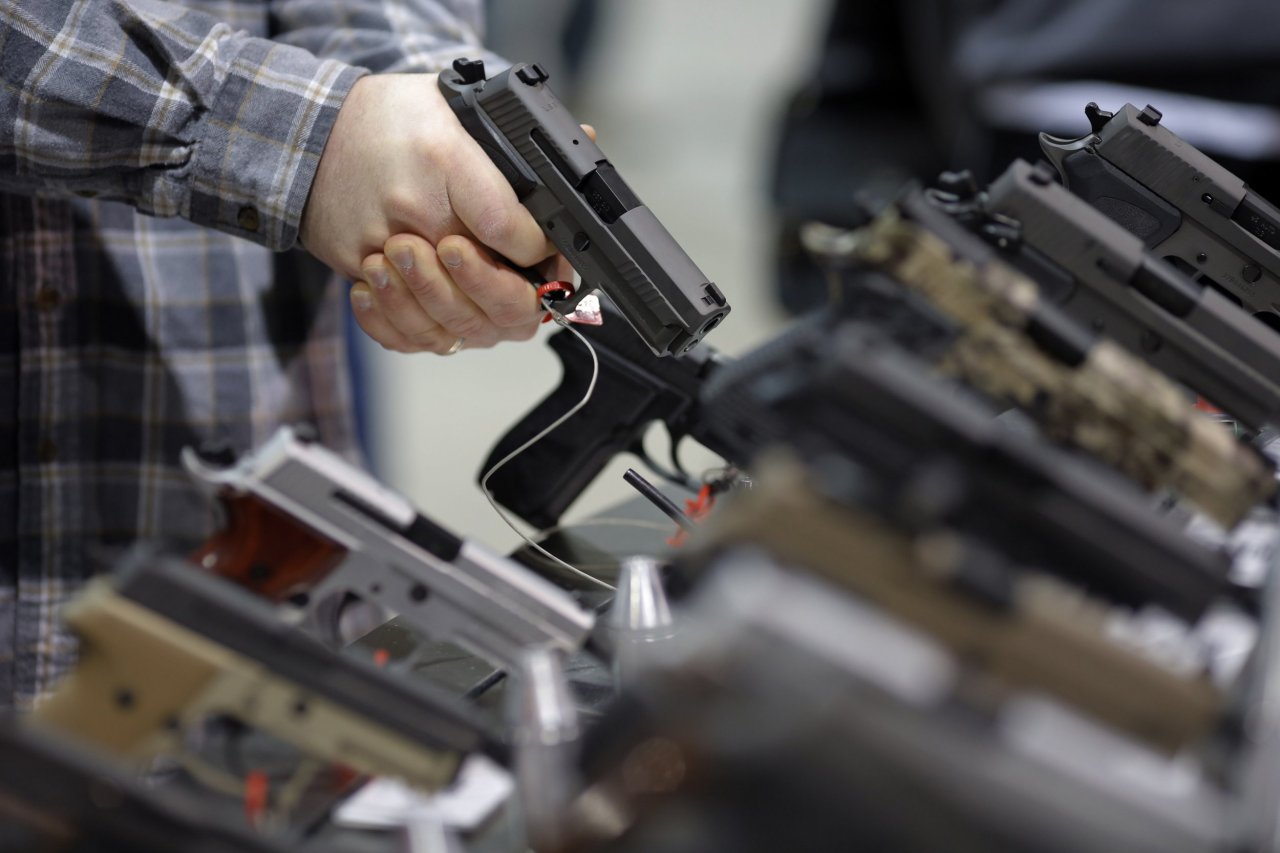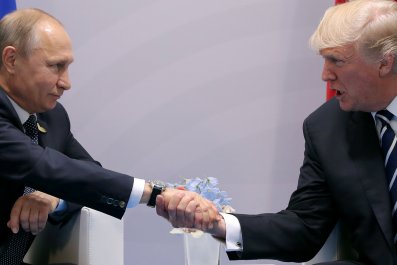We're used to doctors asking about habits that may affect our health, from smoking to having sex. And that's also true of the pediatricians who take care of our children by educating parents about how to minimize everyday health risks.
"Pediatricians are comfortable talking about seat belts and poisons and stuff because we all, just through living, have exposure to those things," Garen Wintemute, an emergency room doctor and public health researcher at the University of California, Davis, told Newsweek. Other less widespread risks, like smoking, are discussed extensively in medical schools. "Firearms are different; firearms aren't an unmitigated hazard like smoking, and firearms have legitimate uses."
That discomfort is clear in results of a survey of pediatric emergency doctors being presented at a talk today at the conference of the American Academy of Pediatrics.
According to lead researcher Sheryl Yanger, an emergency pediatrician at the Ann and Robert H. Lurie Children's Hospital of Chicago, the trouble comes from how heated the issues of gun ownership and gun control have become. "I think there's a politically charged nature to it and people get offended," she Yanger. "There's just a lot of emotions to thinking about gun ownership." That means it's sometimes easier not to talk about the issue at all.
In fact, she was inspired to look into approaches to gun safety after seeing a report on Texas injuries that didn't mention firearms—when she knew from her time in emergency rooms that such injuries were prevalent. According to data gathered by the Centers for Disease Control and Prevention, in 2014, 33,594 Americans were killed with guns and the next year 84,997 people were non-fatally injured by a firearm.
So Yanger decided to survey members of a group of pediatric emergency doctors, asking them about their political beliefs, their own gun ownership, how they handle the topic when talking to patients, and any obstacles they face doing so. "This information is pretty generalizable, even though it's a skewed population," Yanger said, noting that most of the respondents work in urban hospitals affiliated with universities.
According to the survey results, pediatricians are more likely to talk to their patients about gun safety if they believe it will make injuries less common, if they feel confident providing information, and if they feel like it's their responsibility to do so. On the other hand, reported obstacles included political concerns, worries that talking about guns wasn't legal, and not having the information to do so.
Yanger hopes that the survey will encourage the field to take steps to give doctors the information and techniques they need to start discussing gun safety, and Wintemute, who wasn't involved in the survey, agrees. He is anticipating a rise in groups like the American Medical Association becoming more vocal in gun discussions. That's in part the aftermath of a February court decision that overturned a Florida gag rule preventing doctors from asking whether their patients own a gun.
Gun risks vary with the patient, Wintemute added. For children, typically the risk at home is what doctors call "unintentional exposure" when they stumble on a firearm accidentally. As children grow up, suicide and homicide also become concerns. For adults, sometimes a partner's firearm is more dangerous than their own. All of those risks require a physician ask different questions and offer different information.
Those details, plus the range of motivations and sensitivities gun owners have, can make talking about gun safety a minefield, particularly for those unfamiliar with guns themselves. Between 13 and 41 percent of physicians own guns themselves, compared to 36 percent of Americans as a whole.
"For a physician, if I have no personal exposure to guns and the people I socialize with don't either, I'm walking into another culture," Wintemute says of his colleagues. "And they're understandably reluctant to do that."


















